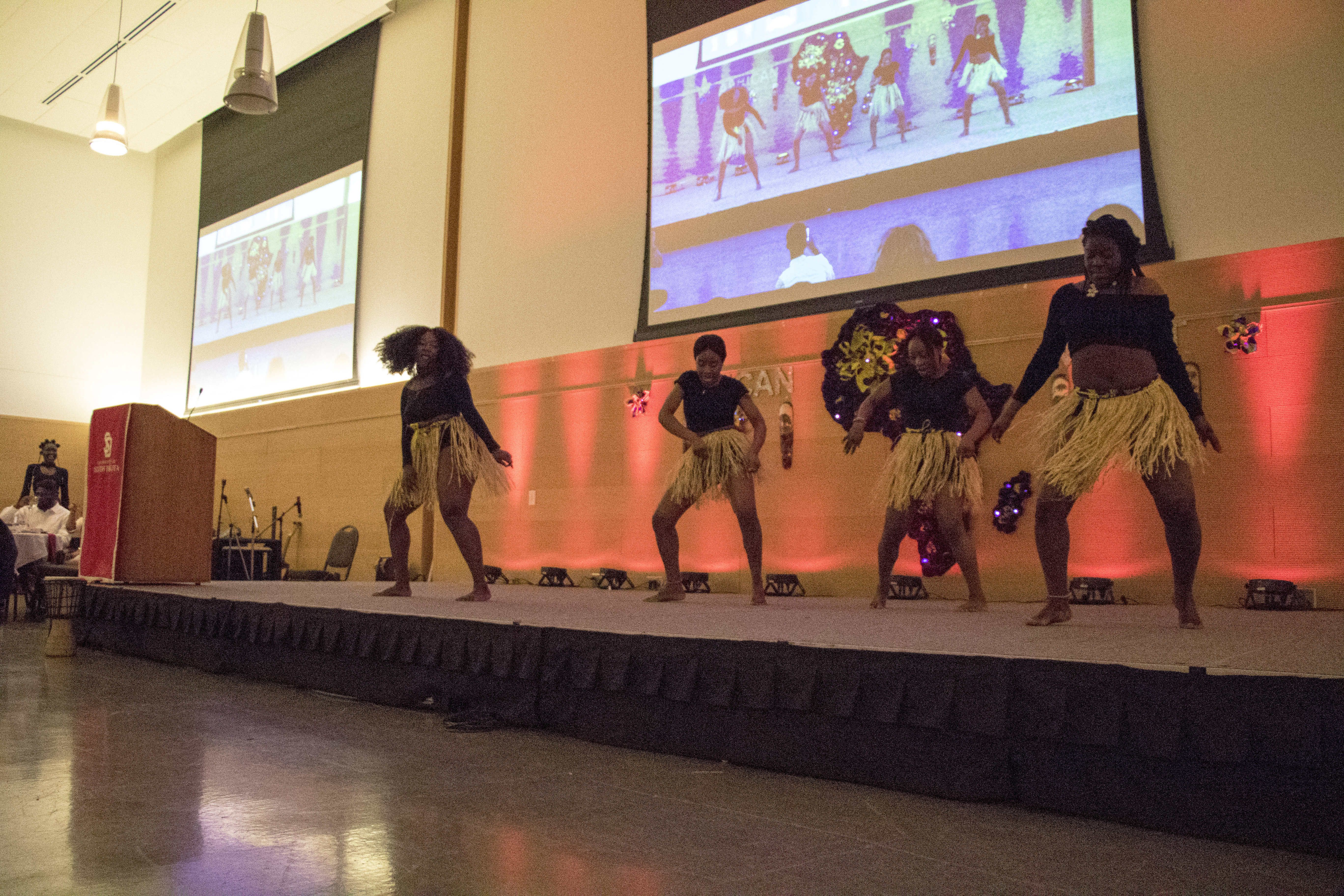
African Night students take an aim to embrace inclusiveness
The Muenster University Center ballroom was filled with singing, dancing and cultural education during the African Student Association’s African Night held in the MUC ballroom on Sunday, March 18.
Lamont Sellers, associate vice president for diversity and advisor for ASA, said he believes the African population does a nice job of getting involved in various groups on campus.
“What it seems like, is they are represented in various ways across campus because many are international students, but they also interact with the African-American population on campus,” he said.
He said the African-American population on campus is bigger than many people realize.
“There are about 294 African-American students on campus, but you don’t necessarily see them all,” Sellers said.
Sellers said African Night is one of the most popular cultural events on campus.
“African Night, along with the Festival of Nations and Wacipi, are some of the biggest cultural events in the spring semester,” he said. “This event brings about 250-300 people each year.”
ASA uses the money raised at African Night to put on their other events, but the majority of the money is used to cover the costs of their book drive.
Each semester, ASA hosts a book drive. The organization pays to transport the books to Minneapolis to be shipped to Africa.
African Night featured traditional food, performances and educational demonstrations.
The kickoff to the evening was a “parade of nations” in which students held flags that showcased some of the countries on the African continent.
Jordy Kipassa, junior international studies major, is from the Democratic Republic of Congo. Kipassa is also the public relations officer for the ASA and was one of the co-hosts of the event.
Kipassa said he was interested in USD because of its affordable tuition. He said it’s sometimes difficult to maintain his cultural identity.
“You feel like a stranger. You feel like you have to adjust to other people’s lifestyle. While still keeping yours, but you have to adjust to the new,” Kipassa said.
Kipassa said having so many other international students makes the adjustment easier.
“They go through the same struggles, so I think the vibe I get from other international students is relatable,” he said.
Kipassa said there are less African students on campus right now, so it was harder to find students to perform at the event.
The ASA hopes events like this can help students learn about African culture.
“We want to bring about knowledge about African culture, because most of the students in the ASA are African so we want to people to know about the diversity we have,” he said. “People can know about it if they are willing to learn about it.”
Allison Bristol, senior English major, said she attends various cultural events on campus with her friends.
“At least in the Midwest, there is not a lot of diversity, and I think it is important to know there are reaches across the world that are good to know about,” Bristol said.
Kipassa said the goal of these events is to embrace inclusiveness.
“I think it is about reaching out, it is about inclusiveness. The good thing about this event is it showcasing different culture,” he said. “When people are trying to reach out and learn, that’s when you kind of grab the hand and say ‘come.’”

